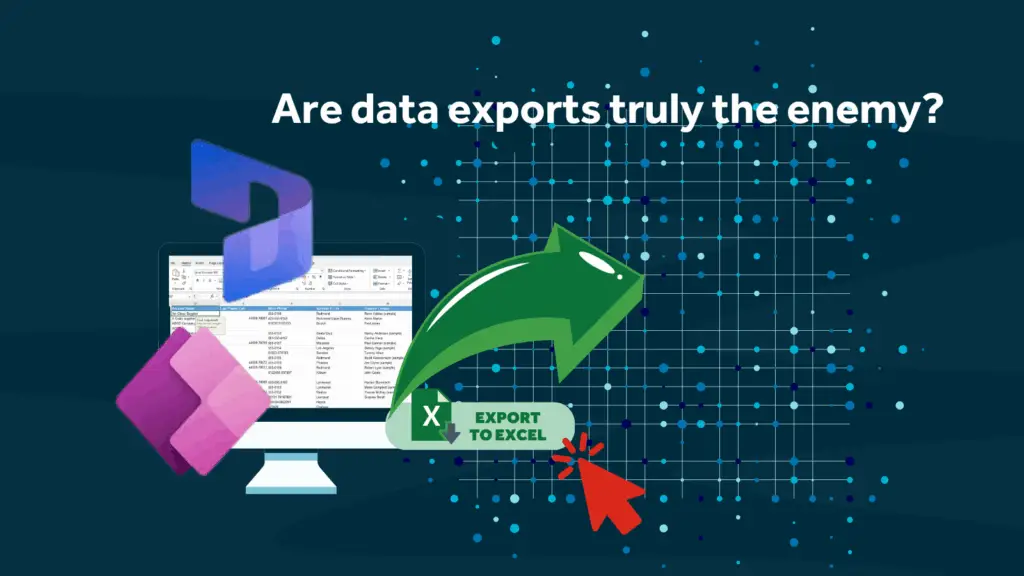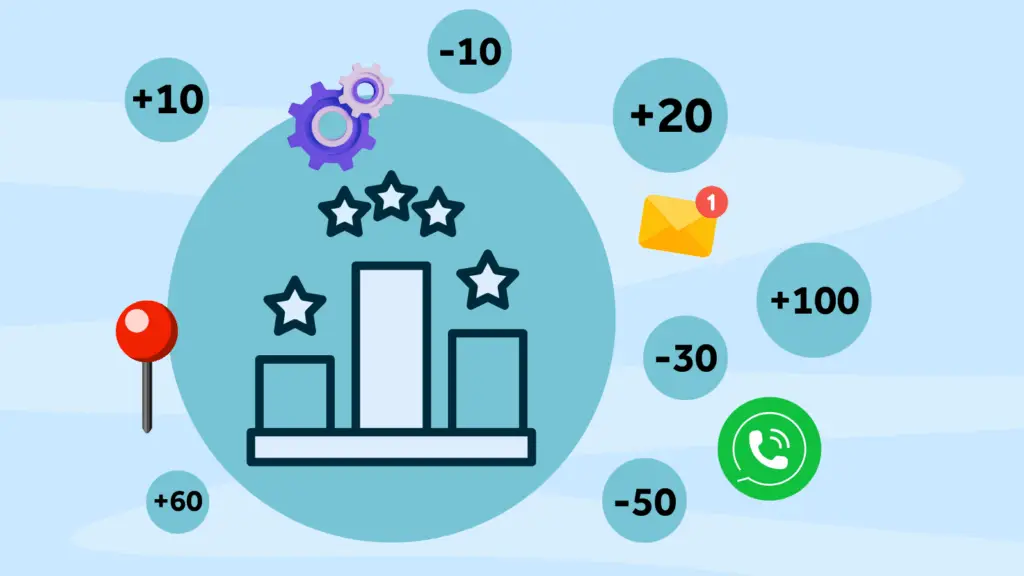Tailored Dynamics 365 CRM training can put the va-va-voom into your sales and marketing efforts by unlocking the potential of your new system.
Implementing a new CRM is an exciting moment where teams and leaders greatly anticipate its transformative impact after months of research, prep and build. However, the cornerstone of this transformation is not the tech alone but the training accompanying its rollout and beyond.
A common misconception is that once a CRM system is up and running, it almost manages itself. Yet, the statistics suggest otherwise, with a staggering 70% of CRM projects faltering due to poor user adoption. This is a direct result of businesses seeing training as unnecessary costs.
Even the most perfect fit system will only succeed if user adoption has been considered. So organisations should ensure their users are acquainted with and confident using the system from day one by deploying CRM training courses.
Then, once your employees settle into the new system, the importance of ongoing Dynamics 365 training becomes increasingly apparent as CRM technology constantly evolves. Staying up to date with new features, updates, and best practices will offer your sales and marketing teams newer avenues to enhance performance.
And it’s not just in the immediate benefits of enhanced performance and collaboration. It’s about building a culture of continuous improvement and adaptation— so that your business or charity remains agile, responsive, and competitive in an ever-changing market.
Is Dynamics 365 and Power Apps CRM difficult to use?
Contrary to what some may say, Dynamics 365 or Power Apps is relatively easy to learn, and it’s possible for ‘non-techie’ folks to get to grips with the software if moving from a different CRM. People often cite it as difficult to use simply because they haven’t been afforded the correct training. Or because the system was not build with users and processes in mind.
Whilst the interface is different to some maintstream CRMs, it’s not difficult. The “difficulty” level is determined by a user’s previous CRM experience and the types of modules and features built into your specific system.
In terms of configuration and system setup, this can be handled by your Dynamics 365 Partner. For this article, we are solely looking at learning the software from a general user perspective, not a technical developer level.
What if I’m using Dynamics 365 for the first time?
For those embarking on their Microsoft Dynamics 365 journey or exploring the capabilities of Power Apps for the first time, the Introduction to Dynamics 365 or Power Apps course is the perfect starting point. It’s an essential CRM training first step, ensuring all users are on the same page and ready to dive deeper into the more advanced functionalities of the CRM and user-specific training.
What training options are available for Dynamics 365 or Power Apps?
Role-specific training is an essential investment when it comes to ensuring that every user is comfortable with your new CRM. The tools, features and applications the various parts of your commercial arm will use will differ depending on their job role. Therefore, customising the training to their job makes absolute sense. Sales folks don’t need to learn how to automate emails, and marketers don’t need to know how to deliver sales quotations.
Marketing user training
Modern marketing teams face the challenge of managing increasingly complex multi-channel campaigns. The Dynamics 365 Marketing or ClickDimensions training is specifically designed for marketing professionals looking to quickly get to grips with the multitude of marketing tools so that they can begin deploying their campaign strategies.
This Microsoft CRM training dives into the functionalities within Dynamics 365 or ClickDimensions. Your marketing CRM users will learn how to plan, manage, and analyse campaigns and events, ensuring they can deploy impactful marketing initiatives that drive engagement and conversion with various tools such as customer journey automation, event management, analytics and reporting, segmentation and list building, and so much more.
Furthermore, the Click Health Check service ensures that your marketing software is correctly configured and perfectly aligned with your marketing objectives, maximising ROI from your marketing technology investments.
Sales user training
For sales teams, the CRM system is more than just a tool—it’s fundamental to setting and meeting targets and ultimately driving revenue. The sales user Microsoft Dynamics CRM training is tailored to management and team members, focusing on using Dynamics 365 Sales to manage and update customer records efficiently.
This includes practical insights into lead management, opportunity management, utilising process flows, and leveraging dashboards and reporting tools for sales tracking and forecasting.
The goal is to ensure your sales users are confident in maximising the benefits of Dynamics 365 or Power Apps CRM by equipping them with the knowledge and tools to optimise and automate much of the sales process. And use data insight to turn leads into valuable customer relationships and, ultimately, sales success.
Customer service user training
Delivering best-in-class customer service is easier when your team knows how to use Dynamics 365 Customer Service to its full potential. Rolling out a Microsoft Dynamics 365 training course will focus on how to utilise customer service automation and omnichannel engagement tools and teach your team how to leverage Dynamics 365 to deliver better customer support through AI-driven insights and intelligence.
Whether managing customer enquiries, tracking service issues, or utilising the platform’s analytics to improve service delivery, this training ensures your customer service team is fully equipped and empowered to deliver a better customer experience.
System administrator training
Undoubtedly, you appreciate just how critical your system administrator is in successfully deploying and maintaining the Dynamics 365 environment. They are, in effect, the in-house ‘go-to’ person, which is why system administrator training is so critical.
Specific system administrator training covers user management, database management, entities, forms, fields, views, dashboards, and administration settings; this comprehensive CRM training will ensure your administrator can maintain the system’s health, manage updates and integrations, and support users across all departments.
With a focus on best practices for system maintenance and security, training your system administrator ensures that your Dynamics 365 system remains robust, secure, and aligned with your company’s needs.
Train-the-trainer: Adaptable & scalable CRM training
When budget constraints dictate the scope and scale of new technology adoption, including CRM training initiatives, prioritising system administrator training initially means that you can extend the benefits of comprehensive Dynamics 365 and Power Apps cost-effective training across your team.
This method isn’t just about economising; it’s about empowering as training your system administrators turns them into in-house experts who can cascade their knowledge and expertise down through the organisation. This train-the-trainer approach allows for personalised, on-demand training that aligns perfectly with the unique needs and schedules of different departments and teams. Maximising the return on your training investment and fostering a culture of continuous learning and self-improvement.
We’ll finish by saying that in this age of information, data is your business’s most valuable asset. Data management CRM training is there to ensure all of your teams understand the critical importance of good data management practices. From data accuracy and cleansing to import/export processes and GDPR compliance. This course covers the techniques and tools needed to maximise the value of your customer data, ensuring your CRM efforts are effective and compliant.
Latest Best Practices: Keys for Improved Agility & Competitive Edge
In the ever changing world of CRM, stagnation is the enemy. Ongoing CRM training programmes keep your team ahead of the curve, ensuring they’re not just familiar with the system but are mastering its latest features and tools.
As Dynamics 365 and Power Apps evolve, so do the strategies for leveraging these platforms effectively. Ongoing training ensures your team embraces the most current methodologies for managing customer relationships, executing marketing campaigns, administering the CRM system, optimising system use, and continuously finding new ways to drive sales. This enables your firm to remain agile and competitive in a rapidly changing digital landscape, letting your team uncover new ways to streamline processes and enhance productivity.
A good Dynamics 365 partner will take the time to update you on recent release waves and offer training to bring your users up to speed.
Recognising the Need for Additional Training
But how do you know if your team needs additional training? Signs include resistance to new processes and user frustration, lacklustre CRM user adoption, inaccuracies in reporting, or a general sense that the CRM isn’t living up to its potential. These red flags signal a need to revisit the basics and rekindle the initial enthusiasm for the CRM.
Allocating a budget for Microsoft Dynamics CRM training is a strategic move. It builds confidence among users, ensures the CRM is used to its full potential, and, ultimately, maximises the return on your investment. After all, a CRM system is only as effective as the data it holds and the hands that manage it.
About Rocket CRM
Rocket CRM is a Microsoft Dynamics 365, and a platinum Click accredited partner, helping small to medium-sized businesses and charities harness the power of scalable CRM technology. Our mission is to make powerful CRM software simple with custom-built, user-focused solutions.
Website: rocketcrm.co.uk
Podcast: RocketPod
Social: LinkedIn




